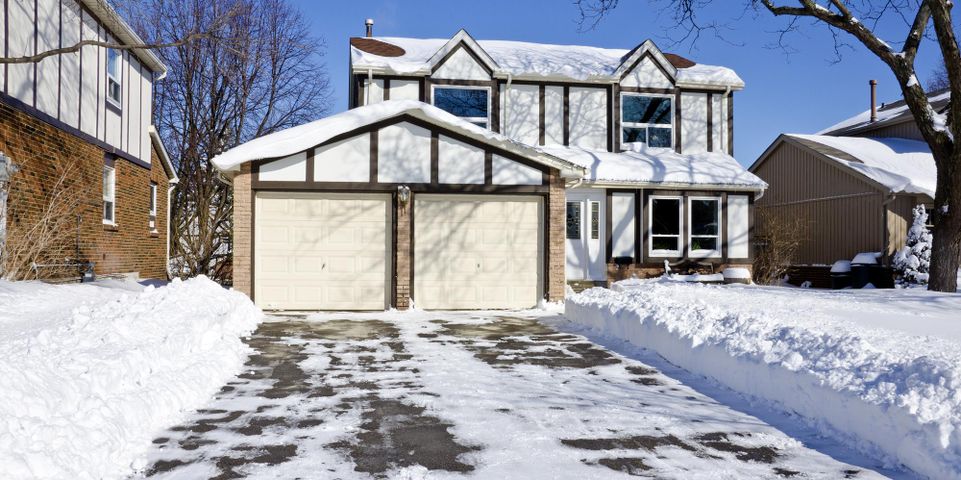
Asphalt is a sturdy and long-lasting driveway material, but to get the most use out of it, you need to perform regular maintenance. This is especially true in the winter, when harsh weather can damage the surface of your driveway. Here’s how winter affects your asphalt surface and what you can do about it.
What Are the Effects of Cold & Snow?
Water expands when it freezes. When liquid seeps down into a crack and then freezes, it can shove apart the materials on either side. Repeated thawing and freezing widens cracks even further and crumbles the strongest materials. This process is a major force in erosion and can also cause serious damage to asphalt if there is even the tiniest crack or flaw in the surface of the sealant.
 Meanwhile, the salt that is put down to discourage ice formation can eat into the surface of your asphalt, slowly chewing through the sealant and allowing water in. While this process is slow, your driveway can also be damaged in an instant by a snowplow or shovel that accidentally scrapes or gouges the surface during snow removal.
Meanwhile, the salt that is put down to discourage ice formation can eat into the surface of your asphalt, slowly chewing through the sealant and allowing water in. While this process is slow, your driveway can also be damaged in an instant by a snowplow or shovel that accidentally scrapes or gouges the surface during snow removal.
How Do You Minimize the Damage?
To keep water out, your driveway needs a sturdy coat of sealant. Regularly applying this treatment during the summer prepares the surface for the winter and helps counteract the effects of road salt each year. In addition, you should watch for cracks and gouges in the surface and repair them as soon as possible. The sooner they are repaired, the less chance there is for water to seep in and make them worse.
If you need help winter-proofing your asphalt, contact Caddo Construction in Anchorage, AK. For over 10 years, they have provided the area’s best services for both commercial and residential clients, including laying and repairing asphalt and removing snow. To learn more about their high-quality results that fit your budget, call (907) 333-6160 or visit their website.
About the Business
Have a question? Ask the experts!
Send your question

